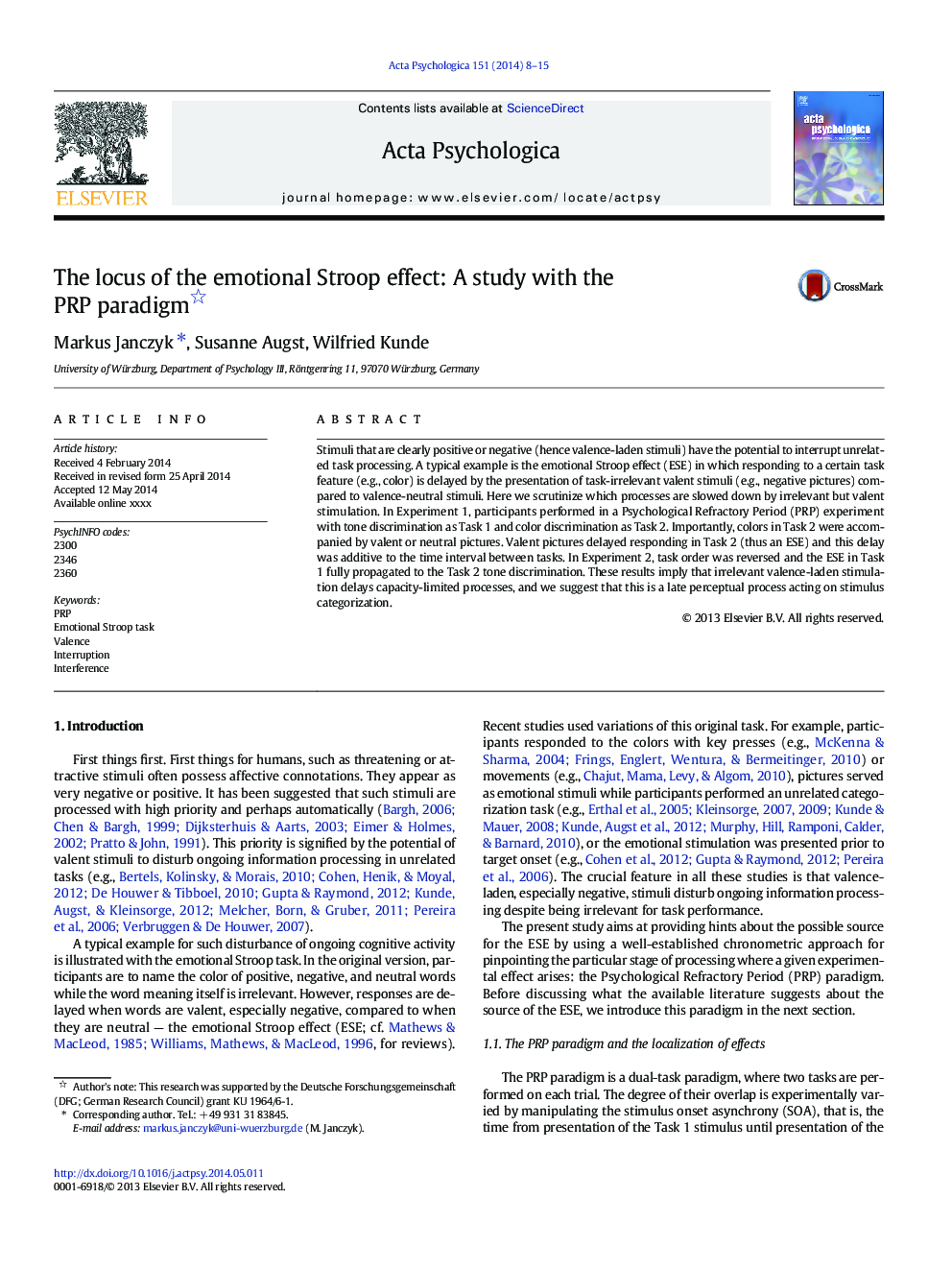| Article ID | Journal | Published Year | Pages | File Type |
|---|---|---|---|---|
| 7277524 | Acta Psychologica | 2014 | 8 Pages |
Abstract
Stimuli that are clearly positive or negative (hence valence-laden stimuli) have the potential to interrupt unrelated task processing. A typical example is the emotional Stroop effect (ESE) in which responding to a certain task feature (e.g., color) is delayed by the presentation of task-irrelevant valent stimuli (e.g., negative pictures) compared to valence-neutral stimuli. Here we scrutinize which processes are slowed down by irrelevant but valent stimulation. In Experiment 1, participants performed in a Psychological Refractory Period (PRP) experiment with tone discrimination as Task 1 and color discrimination as Task 2. Importantly, colors in Task 2 were accompanied by valent or neutral pictures. Valent pictures delayed responding in Task 2 (thus an ESE) and this delay was additive to the time interval between tasks. In Experiment 2, task order was reversed and the ESE in Task 1 fully propagated to the Task 2 tone discrimination. These results imply that irrelevant valence-laden stimulation delays capacity-limited processes, and we suggest that this is a late perceptual process acting on stimulus categorization.
Related Topics
Life Sciences
Neuroscience
Cognitive Neuroscience
Authors
Markus Janczyk, Susanne Augst, Wilfried Kunde,
